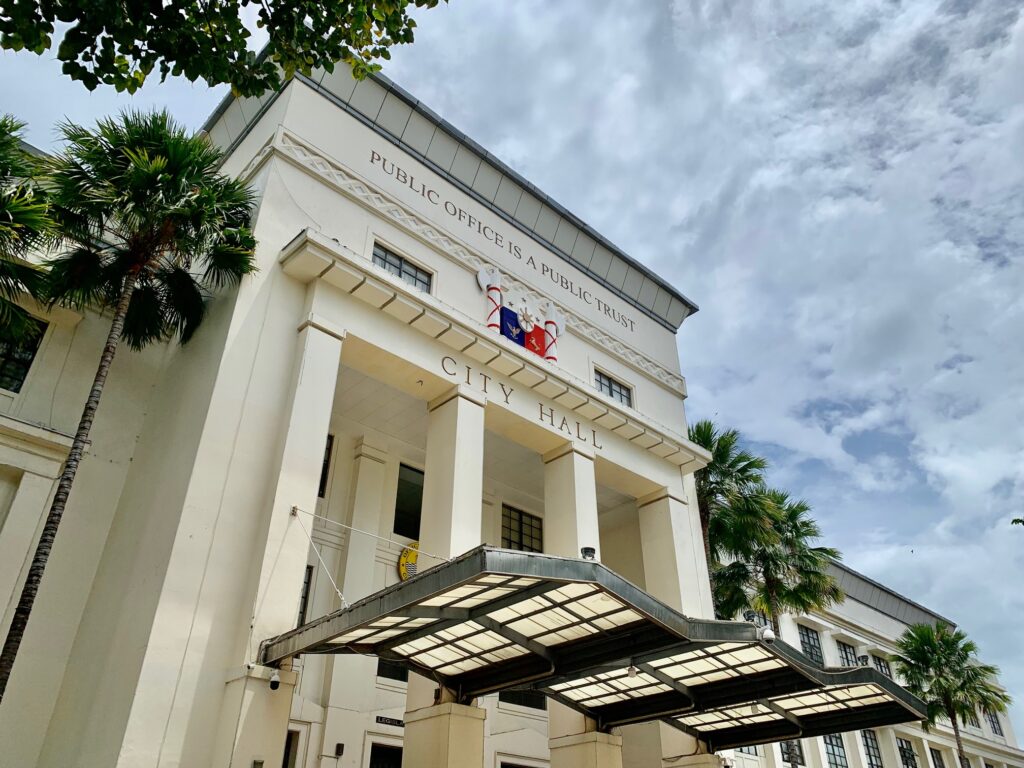
A glimpse at the facade of the Cebu City Hall. | CDN Digital file photo
CEBU CITY, Philippines – The revision of the real property tax (RPT) rates is mandated by law, which orders a revision after a definite period of time.
So said Cebu City Councilor Noel Wenceslao, the chairman of the Budget and Finance Committee, during the third and final public forum with stakeholders and homeowners on Thursday, November 23.
“I have been hearing [misconceptions] that this is purely an increase of taxes. Actually, we are just complying sa national law,” Wenceslao said in an interview.
He cited Section 219 of Republic Act 7160 or the Local Government Code. The section refers to the General Revision of Assessment and Property Classification.
Under this section, the provincial, city, or municipal assessor shall undertake a general revision of real property assessments within two years after the effectivity, and every three years thereafter.
The DILG is even constantly reminding the City to revise and update the fair market values, since the last revision was in 2003 yet, said Wenceslao adding, “Other cities like Mandaue, Lapu-Lapu, Talisay, and even the province of Cebu in 2020 nag revise na sila sa ilang RPT and karon mag revise nasad sila.”
The main objective, he explained, is not to raise real property taxes significantly but rather, to refresh the fair market value. This process involves three key components of real property tax: land, buildings, and machinery.
Furthermore, Wenceslao mentioned that updating the fair market value for land is essential due to the constant development in Cebu City, as land does not depreciate.
“For example, sauna 2003, kanang IT Park, sauna village paman na, wala pay mga building diha, so during that time ang fair market value of the land, ubos gyud but because of the developments now diha na area, musaka na gyud ang fair market value sa land,” he said.
He further elaborated that due to developments in Cebu City, there will be a subsequent rise in the taxes because of the increase in the fair market value of the land, which serves as the basis for taxation.
“[But] as far as assessment level is concerned, there is no increase. Wala man ta nagpasaka sa atong assessment level, it is still the same,” Wenceslao said.
The assessment value of real property tax is the estimated value assigned to a property for calculating property taxes. It considers factors like size, location, and improvements.
This value is used to determine the property tax amount that the owner needs to pay, and it may not always be the same as the property’s market value.
READ: Real property tax rates in Cebu City has new model, pushed at City Council
In Cebu City, the assessment levels for real property tax vary based on the property’s use. For residential land, the assessment level is 2 percent, while for commercial and industrial land, it’s 10 percent. Agricultural land has an assessment level of 4.5 percent, and special land falls under the 10 percent assessment level. These are used to calculate the assessed value, which is then used to determine the property tax amount.
On the other hand, Wenceslao explained that in updating the fair market value, depreciation charges would be factored in for buildings and machinery.
“For example, napalit ni nimo nga machine sa 2003 and until now it’s still operating, sa 2003 mao pa na ang value, but ma-depreciate man kay naa man tay gitawag na wear and tear, so naubos na ang value, so ang impact sa taxes mo-lessen,” Wenceslao said.
“So it’s a misnomer to say that the real property tax revision is total tax increase,” he added.
RELATED STORIES
Senate OKs bill extending estate tax amnesty till 2025
QC to collect real property taxes based on 2017 schedule of fair market values